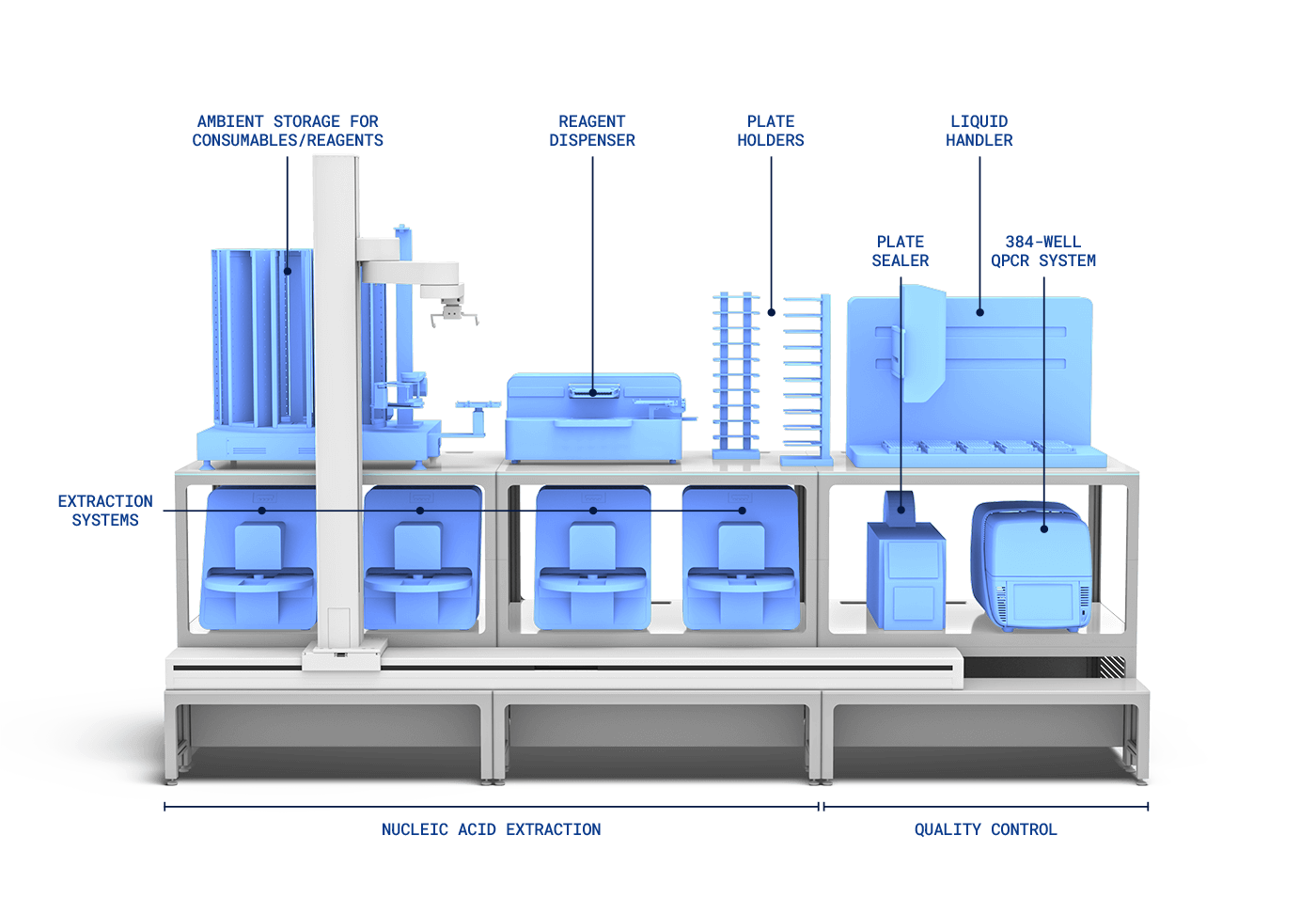The need for fast, efficient, and accurate testing was highlighted during the pandemic, but for a number of years now diagnostics labs have been stretched to maximum capacity, with workforces grappling with significant operational challenges.
While the pandemic exacerbated this, it also underscored the crucial link between diagnostics and public health, and the importance of diagnostic labs being dynamic and agile enough to respond to changing circumstances.
Post-pandemic pressures for diagnostic labs
Reliability
While contending with the challenges of evolving COVID-19 variants the pressure on labs for high-capacity and reliable diagnostic testing did not stop.
Labs also had to continue non-COVID diagnostic testing with the same – if not less – resource than pre-pandemic, and high-profile incidents such as the Wolverhampton Covid-19 testing lab where 43,000 people were given incorrect test results highlighted both the importance of reliability when it comes to diagnostics and the risk of mistakes when pressure is high and resourcing can’t cope.
Innovation
In practice, valuable time is often spent performing necessary but laborious tasks and consequently activities outside the day-to-day simply do not receive the attention that is required. Not only does this create time pressures for staff, but it also has serious ramifications for innovation.
There is ever-increasing pressure on research and development teams to innovate, all the while the wider sector grapples with challenges such as scaling lab capacity whilst competing for a specialised pool of workers and ensuring reliable diagnostic supplies.
WIth fewer resources, equipment at capacity, data delivered in disparate and often untraceable ways and demand never easing, the time to innovate simply isn’t there for many diagnostic labs.
Staffing
The diagnostics sector is acutely understaffed. Research from Automata uncovered how 95% of lab managers polled consider staff shortages to be a major concern, while exhaustion and low staff morale were found to be an endemic issue across the sector.
Fortunately, today a number of technologies have been developed to address these challenges – in particular, laboratory workflow automation technologies. Automation can revolutionise the way labs work, as the technology brings with it a number of important benefits, from increased scalability to better quality results.
What is automation in a diagnostics laboratory?
Automation at its core means that something other than manual intervention is responsible for executing a task.
Today, automation technology is generally used to reduce the pressure on humans to conduct repetitive tasks, which in labs means things like pipetting and colony counting. This type of simple one-step automation is often referred to as ‘benchtop’, and it’s considered the fastest way for labs to adopt automation for immediate impact.
Automated lab equipment can generally process more workload with less manpower while reducing the errors associated with repetitive tasks being performed by humans, which is why it’s so attractive. However, automation that goes beyond benchtop connectivity has the potential to revolutionise diagnostics labs. Linking multiple processes and equipment allows entire assay workflows to be done intervention-free, in a way that is trustworthy, fast, and scalable.
What is laboratory workflow automation?
Workflow automation utilises the power of robotic and digital connections (hardware and software) to link and execute full assays, end-to-end, at the touch of a button. Pre-analytics, analytics and post-analytic stages can all be executed autonomously, giving scientists true walkaway time.
For example, this extraction and quality control workflow, integrated and automated with LINQ, our automation platform, would extract and QC 1,800 samples per hour with 99% fewer manual interactions required.

You can see a variety of extraction systems and supporting equipment integrated into a three-bench platform which uses a robotic arm to move consumables from one step to another, orchestrated by Cloud-based software managed by the team from anywhere. Once samples and consumables are loaded there is nothing more for the scientists to do.
What benefits does automation bring to the lab?
Increased productivity and scale
Lab automation equipment is typically able to operate much faster than human workers can. Therefore one of the key benefits of lab automation in diagnostics is that it helps labs increase their output considerably. This allows tests to be analysed at a scale far greater than humans can manage and increases the speed at which results can be turned over, improving patient outcomes.
Lab automation software can also help streamline assays considerably by enabling you to standardise and control your workflow with ease. It also allows you to repeat previous experiment setups exactly, saving yet more time.
Increased walkaway time for staff
As well as increasing productivity for staff, lab automation also improves the quality of their work life. Scientists often spend years gaining their degrees, only to find themselves doing repetitive, dull tasks day in, day out. As a result, there is a worldwide shortage of trained lab workers.
With automation, staff can take a step back from equipment and focus on the research and problem-solving skills they spent years honing. Time away from repetitive tasks also means that repetitive strain injury, a common condition among lab workers, is limited, and no in-lab cover is required during weekends or antisocial working hours.
Enhanced safety
Processing clinical laboratory specimens comes with a risk of contamination. Equipment can also be potentially dangerous and cause accidents. However, automation technology reduces the amount of time that workers are exposed to hazardous environments and increases your lab’s productivity as the time spent on safety protocols is reduced.
Social distancing can also be easily ensured with automation, a critical factor for many labs during the COVID-19 pandemic and one we may one day need to enforce again.
More reliable results
Human error is one of the biggest causes of unreliable, low-quality results in the lab. But automation technology does not make mistakes. In fact, automation is as accurate when it conducts the first process as it is when it conducts the thousandth. This means more accurate results in diagnostic testing, and more reproducible results for labs more generally.
Lab automation software also automatically inputs data into reports, reducing the number of errors in manual reporting.
Saves money, space and resources
It used to be the case that automation technology was too expensive, large and complex for anything but the biggest, best-funded labs. But as automation technology has become more advanced, it has become more affordable, easily integrated and accessible.
As a result, considering all the benefits we have covered, today’s automation solutions come with real money and time savings.
The benefits of automation to diagnostic labs as demand increases and the availability of resources continues to add additional strain is obvious. But we know it’s a bit investment. That’s why we offer a no-strings consultation with our solutions team, who will listen to your challenges and goals before suggesting ways your lab could benefit from automation, and a ‘pay per plate’ financing option for those who prefer. Get in touch today to start your journey.
